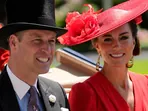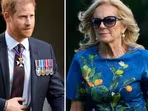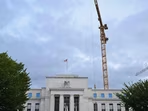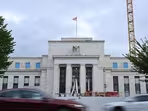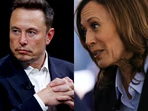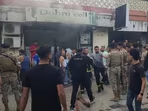Exclusive | Imperialist Putin won’t negotiate, war won’t end this year: Ex-Ukraine minister Gerashchenko
New Delhi: For nearly two weeks, Ukrainian forces have been seizing and holding Russian territory in what marks the first instance of a foreign military fighting inside Russia since World War II. Ukraine’s incursion into the Kursk region is an unexpected escalation, more than two years after Russian President Vladimir Putin launched his invasion of Ukraine. In response, the Kremlin has pledged to push back the Ukrainian forces, calling it a critical priority.
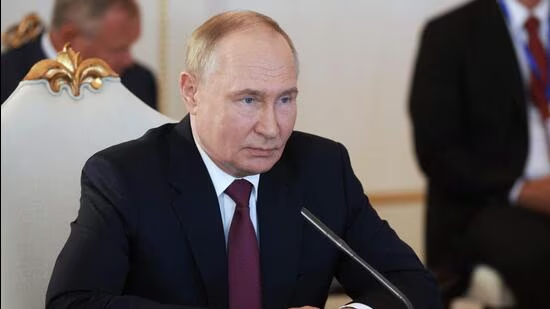
As the Ukrainian air force targeted a key bridge vital for Russian supply routes in the Kursk region on Sunday, Anton Gerashchenko, Ukraine’s former Deputy Minister of Internal Affairs, spoke with Hindustan Times about the war’s future trajectory, the possibility of a truce, Kyiv’s prospects of joining NATO, the potential impact of Trump’s return on US aid to Ukraine, and India’s neutral stance on the conflict.

Edited excerpts from the interview:
Q. What is your assessment of the current situation on the ground, and where do you see the conflict heading in the coming months? Are there any chances the war could end this year?
“Throughout the Russian-Ukrainian war, Ukraine has repeatedly demonstrated its ability to dramatically shift the course of military events. Despite harsh conditions, Ukraine has shown remarkable resilience and turned negative scenarios in its favour, as seen in the Kursk region operation. This offensive is causing huge political and military shifts within Russia, affecting Ukraine’s allies and revealing cracks in Putin’s regime. Putin’s distrust of his generals, the jailing of many, and the indecisiveness among his entourage point to a regime struggling with instability.
“While it’s too early to gauge specific outcomes, it’s clear the operation is disrupting Russian logistics, increasing Ukraine’s prisoner exchange fund, and forcing Russia to redeploy combat units from eastern Ukraine to Kursk. The operation has evidently surprised both Russian military leaders and Putin. For Ukraine, the war’s end means reclaiming occupied territories and ensuring fair punishment for Russia.
“This is an existential war for Ukraine, one for survival and independence. While a temporary freeze and negotiations might be possible by mid-autumn, a complete end to the conflict is unlikely this year. Putin’s refusal to negotiate means only Russia’s defeat or Ukraine’s fall could end the war. I firmly believe Ukraine will not be defeated, but a swift end to the war is not foreseeable. So, our unity and resilience are essential as we prepare for a tough winter ahead.”
Q. How seriously does the Ukrainian government take Putin’s threats? Do you believe Russia will ever accept a battlefield defeat in Ukraine?
“We take Putin’s threats very seriously. His aim is to obliterate Ukrainian independence, remove or displace the active population, and assimilate those who remain in occupied areas.
“Essentially, Putin wants a scorched, deserted land, which he refers to as a ‘sanitary zone’ between Russia and NATO. Ukrainians fully understand this.
“We saw the atrocities against civilians from the start of the invasion, which is why Ukrainians have bravely resisted with everything they have. Our resistance is a matter of survival.”
Q. Given Tucker Carlson’s recent interview with Vladimir Putin, where he expressed surprise that Putin justified the invasion of Ukraine based on historical claims rather than fear of an imminent attack by the US or NATO, how do you respond to Putin’s rationale? What does this reveal about Russia’s long-term objectives in the region?
“Putin has an imperialistic mindset, with ambitions extending beyond Ukraine. By invoking pseudo-history, he wants to justify his claims on Ukrainian and other neighbouring territories. Ukraine is a sovereign state, and modern territorial boundaries should be determined by international law, not by the historical fantasies of dictators.
“If territorial disputes were settled militarily, it would lead to global chaos. If Ukraine loses, this chaos is inevitable. Therefore, nations aiming to restore global security and avoid widespread conflict have a vested interest in Ukraine’s victory.”

Q. Do you believe there is still room for diplomacy between Ukraine and Russia?
“Russia is a neighbouring country with a shared, complex history with Ukraine, but our focus is on building a future for our country and our children. We prefer diplomacy over conflict, which is why our President (Volodymyr Zelensky) initiated the Ukraine Peace Summit, and we are grateful to India for its participation.
“But negotiations become feasible when the other side acknowledges your right to exist and live. So, diplomacy is possible when Russia recognises Ukraine’s sovereignty, agrees to Ukraine’s demands and international law, admits its wrongdoing, and makes reparations. I believe this is possible.”
Q. India has maintained a neutral stance on the Russia-Ukraine conflict and refrained from imposing any sanctions on Russia, unlike many Western countries. How do you view India’s decision to remain neutral in this situation?
“Yes, India has avoided openly condemning Russia and maintained a neutral stance on the conflict with Ukraine. However, Prime Minister Narendra Modi, during a meeting with Putin, emphasised that a solution cannot be achieved through war. While Russia’s actions have upended a fragile world order due to its imperial ambitions, India has consistently advocated for respecting the UN Charter, including the sovereignty and territorial integrity of nations, and has called for dialogue and diplomacy.
“Your history deserves great respect. So, given India’s history of struggling for independence and democracy, I believe India, having emerged as a leading democratic state, cannot ignore Ukraine’s fight against colonialism. India has the potential to lead the ‘Global South’ in shaping a new global order, with others likely to follow.”
Q. What about NATO membership? Do you think Ukraine can ever secure a NATO membership? How important is it for Kyiv to join NATO?
“I am expressing my own perspective here. I believe Ukraine has long served as Europe’s eastern shield. Eventually, Ukraine will join the European collective defence system. It’s crucial for Ukraine to be integrated into Europe and its security framework. Ukraine seeks robust guarantees of peace.”
Q. How might the results of the US elections influence the Russia-Ukraine conflict? Could US financial support for Ukraine decrease if Trump is re-elected?
“The US is Ukraine’s key partner and ally. Ultimately, the winner of the US presidential election will assume office and prioritise their country’s interests. So, I don’t believe that Russia’s victory aligns with US foreign policy, especially given that it would strengthen China’s position.”
Disclaimer: The copyright of this article belongs to the original author. Reposting this article is solely for the purpose of information dissemination and does not constitute any investment advice. If there is any infringement, please contact us immediately. We will make corrections or deletions as necessary. Thank you.
Title:Exclusive | Imperialist Putin won’t negotiate, war won’t end this year: Ex-Ukraine minister Gerashchenko
Url:https://www.investsfocus.com

